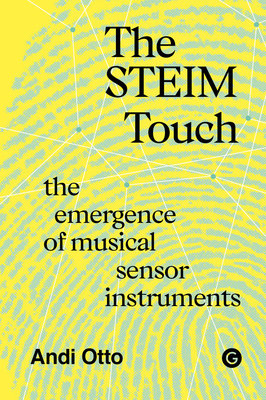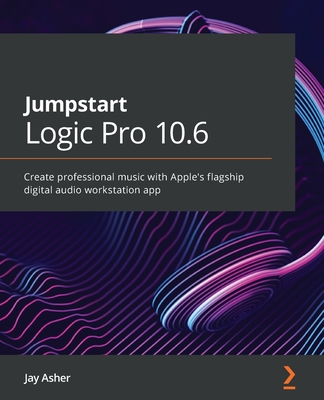The Steim Touch
暫譯: Steim 觸感
Otto, Andi
- 出版商: Goldsmiths Press
- 出版日期: 2026-05-26
- 售價: $1,940
- 貴賓價: 9.8 折 $1,901
- 語言: 英文
- 頁數: 256
- 裝訂: Hardcover - also called cloth, retail trade, or trade
- ISBN: 1915983452
- ISBN-13: 9781915983459
-
相關分類:
視覺影音設計
尚未上市,無法訂購
商品描述
The story of STEIM and the first sensor instruments in digital music. STEIM, the Studio for Electro-Instrumental Music in Amsterdam, was different from other music studios of the 20th century. Its explicit dedication to the live performance of electronic music made it a hub for artists seeking individual ways to bring music technology to the stage. In its 52 years of existence, STEIM has supported and inspired around 1500 artists and engineers to develop individual ways of touching electronic sound. Born in 1969 out of Amsterdam's vibrant and politically charged music scene, STEIM finally closed its doors in 2021 due to lack of funding. A key figure in the history of the studio was the former director Michel Waisvisz (1949-2008). His instrument The Hands was the first gestural musical interface in digital music: it used sensors to generate data from hand movement. In 1984, it was ahead of its time: MIDI had just been introduced as a standard protocol for musical control data, and The Hands applied it in a surprisingly physical way. Waisvisz's work together with the STEIM engineers inspired a whole generation of sound artists to create experimental musical interfaces at STEIM towards the end of the 20th century. These early gestural interfaces for playing electronic music are the focus of this book. Dutch Touch captures STEIM's particular physical approach to digital media, its history, context and legacy. This first documentation of the studio's archive and aesthetics fills an essential gap. Not only as a historical account, but also as a blueprint for today's challenges concerning embodiment and performance in artificial, algorithmic musical environments.
商品描述(中文翻譯)
STEIM 與數位音樂中第一批感測器樂器的故事。
STEIM,即阿姆斯特丹的電子樂器音樂工作室,與20世紀的其他音樂工作室有所不同。它明確致力於電子音樂的現場表演,使其成為尋求個性化方式將音樂科技帶上舞台的藝術家的中心。在其52年的歷史中,STEIM 支持並啟發了約1500位藝術家和工程師,發展出獨特的方式來觸碰電子聲音。STEIM於1969年在阿姆斯特丹充滿活力和政治氛圍的音樂場景中誕生,最終因資金不足於2021年關閉。該工作室歷史上的一位關鍵人物是前任主任米歇爾·維斯維茲(Michel Waisvisz,1949-2008)。他的樂器 The Hands 是數位音樂中第一個手勢音樂介面:它使用感測器從手部動作中生成數據。1984年,這一創新超前了其時代:MIDI剛剛被引入作為音樂控制數據的標準協議,而 The Hands 以驚人的物理方式應用了這一技術。維斯維茲的作品與STEIM工程師的合作,啟發了一整代聲音藝術家在20世紀末於STEIM創造實驗性音樂介面。這些早期的手勢介面用於演奏電子音樂,是本書的重點。Dutch Touch 捕捉了STEIM對數位媒體的特定物理方法、其歷史、背景和遺產。這是該工作室檔案和美學的首次文獻記錄,填補了一個重要的空白。不僅作為歷史記錄,也作為當今面對人工、算法音樂環境中具身性和表演挑戰的藍圖。作者簡介
Andi Otto is a Hamburg-based sound artist, composer, and performer. His work centers on the exploration of experimental human-machine interfaces in electronic music. He performs with his self-developed sensor bow "Fello," which transforms his cello bow into a gestural sound device. He also builds interactive sound installations and creates real-time sound design settings for dance and theater performances. Otto is a lecturer in the Sound Arts department at the HKB in Bern and co-founder of the record label Pingipung, where he releases music by artists such as Anadol, Umeko Ando, and Marie Klock. He has released six solo albums on international labels, tours worldwide and performs in duo projects with MD Pallavi and F. S. Blumm.
作者簡介(中文翻譯)
安迪·奧托(Andi Otto)是一位位於漢堡的聲音藝術家、作曲家和表演者。他的作品專注於探索電子音樂中的實驗性人機介面。他使用自己開發的感應弓「Fello」進行表演,該裝置將他的大提琴弓轉變為一種手勢聲音設備。他還建造互動聲音裝置,並為舞蹈和戲劇表演創造即時聲音設計環境。奧托是伯恩藝術大學(HKB)聲音藝術系的講師,也是唱片公司Pingipung的共同創辦人,該公司發行了安納多(Anadol)、安藤梅子(Umeko Ando)和瑪麗·克洛克(Marie Klock)等藝術家的音樂。他在國際唱片公司發行了六張個人專輯,並在全球巡演,與MD Pallavi和F. S. Blumm進行二重奏項目表演。










